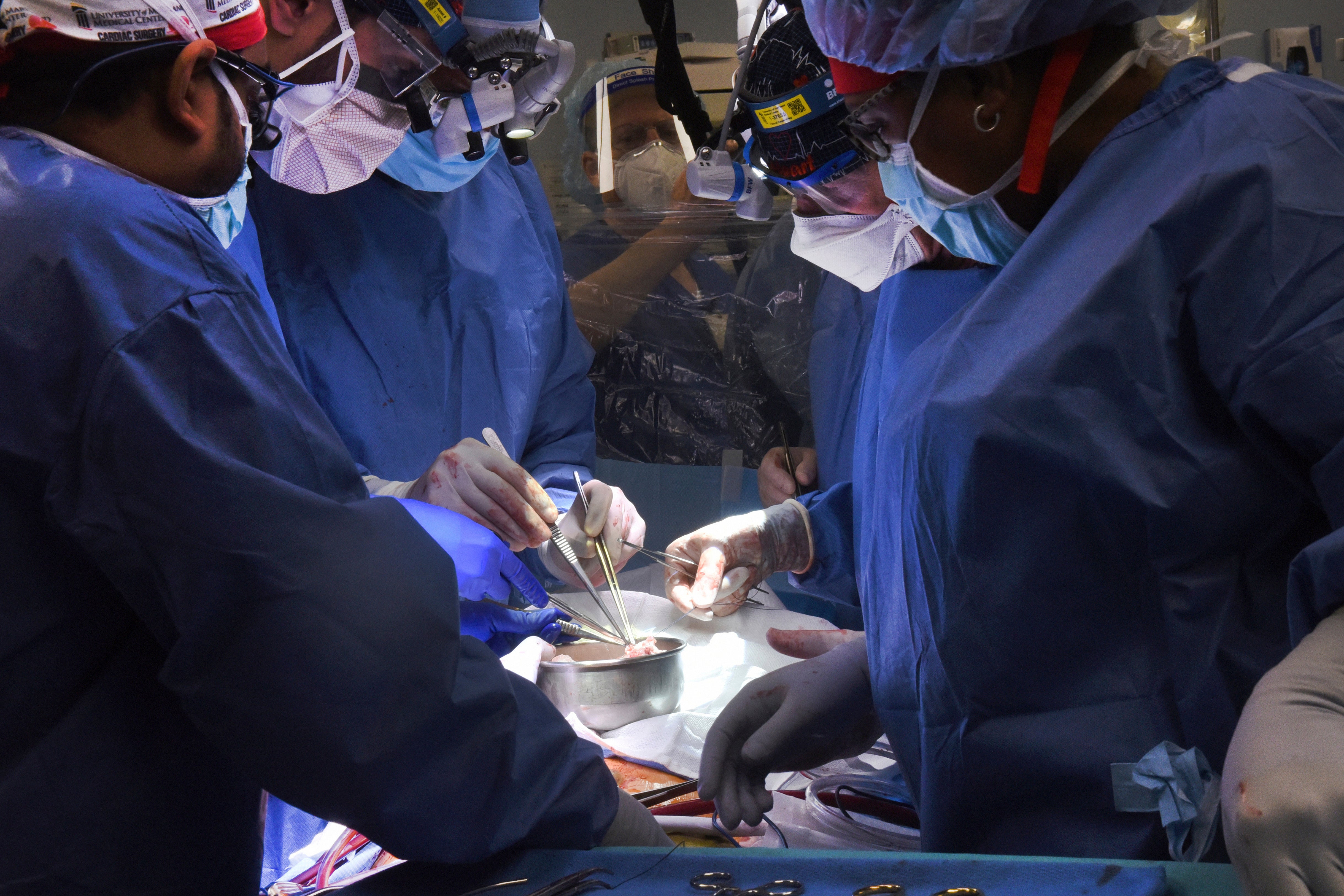Pig heart recipient continues to recover from transplant
The man who received the first pig heart transplant is continuing to recover from the experimental surgery

Your support helps us to tell the story
From reproductive rights to climate change to Big Tech, The Independent is on the ground when the story is developing. Whether it's investigating the financials of Elon Musk's pro-Trump PAC or producing our latest documentary, 'The A Word', which shines a light on the American women fighting for reproductive rights, we know how important it is to parse out the facts from the messaging.
At such a critical moment in US history, we need reporters on the ground. Your donation allows us to keep sending journalists to speak to both sides of the story.
The Independent is trusted by Americans across the entire political spectrum. And unlike many other quality news outlets, we choose not to lock Americans out of our reporting and analysis with paywalls. We believe quality journalism should be available to everyone, paid for by those who can afford it.
Your support makes all the difference.The man who received the first pig heart transplant continued to recover Tuesday, four days after the experimental surgery.
Since the transplant, David Bennett had been connected to a heart-lung machine to support his new heart. He was taken off the machine Tuesday, according to Deborah Kotz, a spokeswoman for the University of Maryland School of Medicine.
“It’s still day to day and will be for the next few weeks,” Kotz said in an email.
Bennett, 57, received the highly experimental transplant last Friday at the University of Maryland Medical Center. Doctors gave him the genetically modified pig heart as a last-ditch effort to save his life.
Bennett's condition — heart failure and an irregular heartbeat — made him ineligible for a human heart transplant or a heart pump, doctors said.
Because of the shortage of human organs donated for transplant, scientists have been trying to figure out how to use animal organs instead. The heart came from a pig that had been genetically modified to make its organs less likely to be rejected by the human body.
The Food and Drug Administration, which oversees such experiments, allowed the surgery under what’s called a “compassionate use” emergency authorization, available when a patient with a life-threatening condition has no other options.